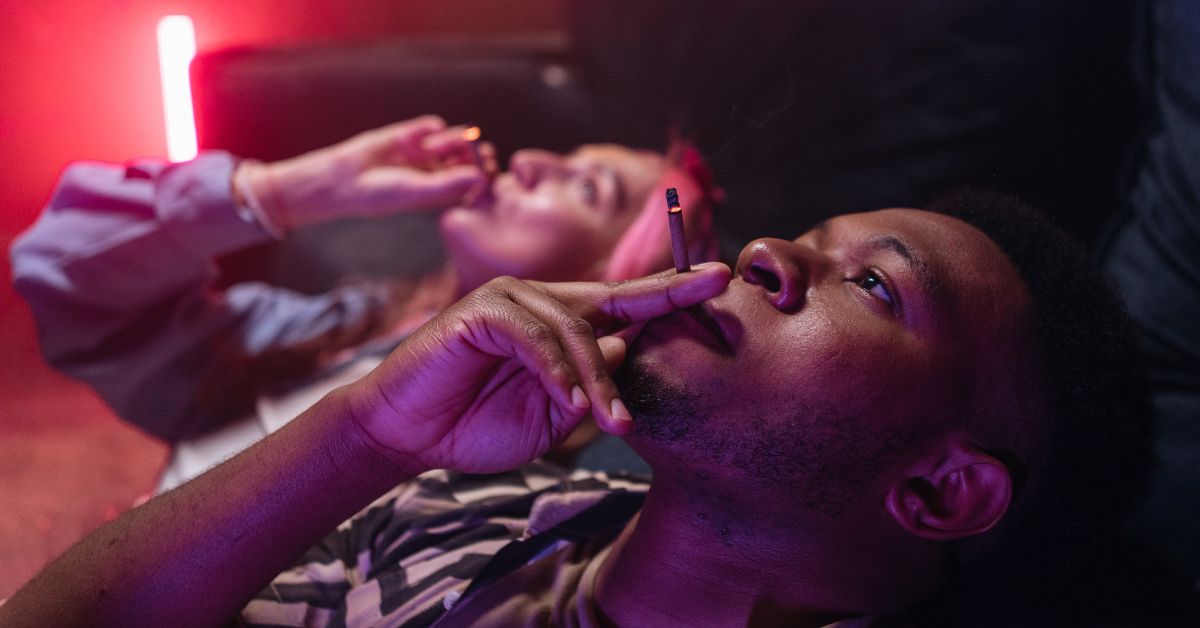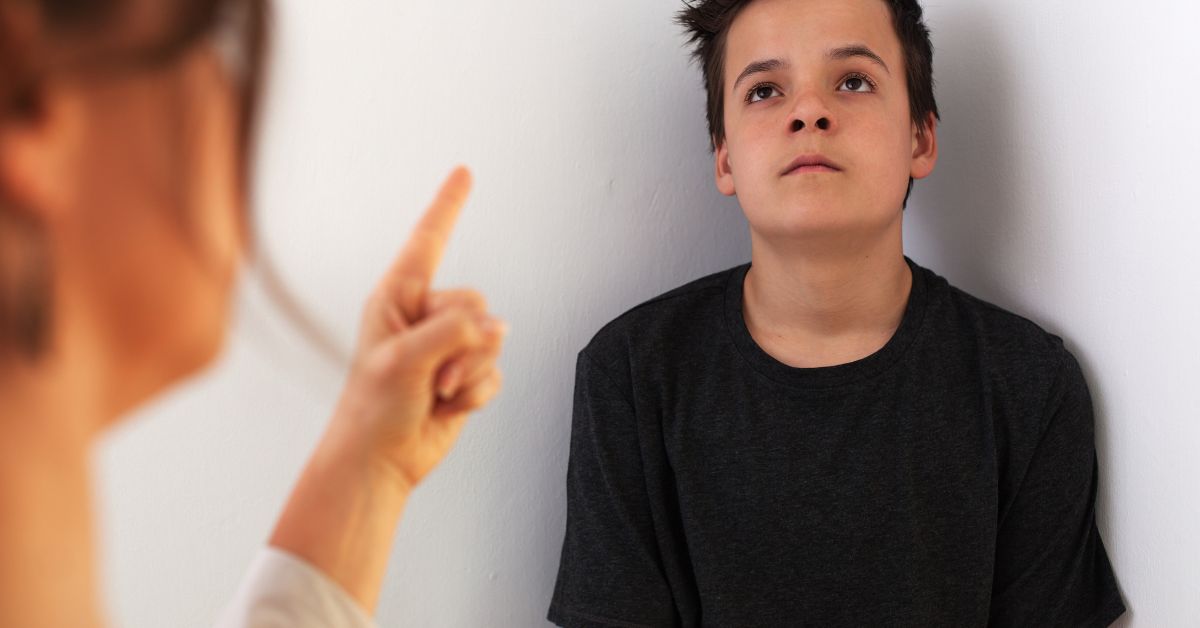I know it’s not easy, even thinking about this. Your gut’s all tied up, and your heart’s doing somersaults. You’re wondering if your kid might be using something they shouldn’t.
If you’re like most of us, you didn’t sign up for detective work when you started this whole parenting gig.
It’s tough to spot the signs and even tougher to admit we need to look for them. But love’s got a way of nudging us to open our eyes, even when we’d rather keep them shut.
Let’s gently walk through this together, step by step.
How to Tell If Your Child is on Drugs – Looking for Signs
Knowing whether or not your kid is high can be difficult. You’re looking for clues, trying to piece it all together, but it’s not always clear.
Let’s look at some signs that might tell you if your teen is high, especially on something like marijuana, which, let’s face it, is pretty common these days among young folks. Let’s take a look at the most important of many signs of drug use your teen may show.
Physical Signs to Look Out For
When your kid walks through the door, you can sometimes tell something’s off, right? Here are a few physical signs that might tip you off:
- Red or glassy eyes: Like they’ve been rubbing at them, or they’ve been in a room full of smoke.
- Slowed reaction times: If you toss them the car keys, and it’s like catching a hot potato in slow motion, that’s a sign.
- Unusual sleep patterns: Either they’re up at all hours or sleeping like a log.
- Poor coordination: If they’re tripping over their own feet, that’s something to keep an eye on.
GET: The 3 things that actually "allowed" me to help my son (and regain control again)
Behavioral Signs to Keep an Eye On
Behavior can be a big sign, too. Here’s what might raise a red flag:
- Mood Swings: Extreme highs and lows can occur. One moment, they’re on top of the world; the next, they’re unusually irritable or sad.
- Sudden secrecy or withdrawal: If they’re acting like a spy hiding their mission, it could be a sign.
- Changes in social groups: New friends are great, but if their old buddies are now history, ask yourself why.
- Lack of interest in hobbies: When their guitar gathers dust or their soccer ball stays deflated, it could mean trouble.
- Paranoia or anxiety: If they’re jumpy like a cat in a room full of rocking chairs, they might be feeling the effects of being high.
- Financial Issues: Unexplained spending or constantly asking for money could suggest they’re funding a habit.
- Poor hygiene habits: Stay alert for possible neglect in areas such as regular bathing or dental care.
- School or Work Problems: A noticeable drop in their academic performance or attendance can be linked to substance use.
Seeing these changes in your teenager and not knowing what they mean is a tough spot to be in. But remember, these signs don’t always mean your child uses drugs—stress and other health issues can cause similar behaviors. The key is open communication and seeking professional help if you’re concerned. If the question of whether you should drug test your teenager is on your mind, it’s a balance between trust and caution, but your steady hand can guide them through this confusing time.
Smoking Weed: Signs of Marijuana Use

It’s not a secret that marijuana, or cannabis, has become one of the most popular drugs, especially among adolescents. If your child has started using marijuana, you might see changes that are subtle or quite clear.
Let’s break it down into tips so you can keep an eye out. Signs of marijuana use may seem similar to other drugs, but there are a couple of particular signs that can help you tell that your child has been smoking pot. If you pay attention, you can quickly tell if your child is high or not.
Changes in Behavior and Mood
First off, you might notice your child acting a bit differently. Here are a few signs that could be telltales:
- Altered Sleeping Patterns: Maybe they’re staying up later than a raccoon or sleeping like a bear in hibernation. Weed can mess with the body clock.
- Unexplained giggling: Sure, laughter’s good medicine, but if there’s no joke and they’re still chuckling, it’s worth a second look.
- Changes in Motivation: Lack of motivation is a common sign of marijuana use. Also, look at your child’s academic performance since their grades might drop.
UPDATED: Discover the 3 life-changing things about addiction I wish I knew years ago
Physical Signs
Apart from the mood swings and social switches, there might be physical signs that are easier to spot:
- Red, Glassy Eyes: If their peepers often look like they’ve just come from a wind tunnel, it could be a clue.
- Increased Appetite: Known as the munchies, if they’re raiding the kitchen more than usual, it’s a sign.
- Dry Mouth: If they drink water like there’s no tomorrow, it might not just be because they’re thirsty.
- Distinctive Smell: Like many other drugs, weed has a distinctive smell. If you come across an unusual scent in your child’s room or on their clothes, it could be a sign.
- Slurred speech: If your kid’s speech is slow or difficult to understand, that is another clear sign that they may be smoking weed.
Finding out your child might be smoking marijuana can stir up your emotions, but remember, it’s not the end of the world. Stay calm, and approach the subject with love. Have a heart-to-heart talk without sounding the alarm bells. Together, you can work through this, one step at a time.
Identifying Evidence of Drug Use in Your Child
It’s important to remember that while finding evidence can be a clear indicator, it’s not always as straightforward as we’d like it to be.
Look for Physical Paraphernalia
- Unusual Items: Keep an eye out for things that seem out of place. This could be pipes, syringes, rolling papers, or small glass vials.
- Hidden Stashes: Sometimes, these items are hidden in the least expected places—inside books, within clothing pockets, or in the false bottoms of drawers.
If you do find something, try to approach the situation with a calm and open heart. It’s not about blaming or shaming; it’s about extending a helping hand to someone you love dearly.
FREE: Get the 3 pieces of advice that helped me understand this disease of addiction
Confronting Drug Use: How to Tell If Your Kid Is Involved

Now, let’s suppose these signs are adding up, and your heart’s getting heavy with worry. It’s time to have that talk. But how do you even begin?
- Choose the Right Time and Place: Find a quiet, private space where you won’t be interrupted. Make sure it’s a time when neither of you is rushed or under pressure.
- Be Calm and Open: Easier said than done, right? But your approach can set the tone. Keep your voice even, your mind open, and your heart in a place of love.
- Express Concern, Not Accusation: Talk about the changes you’ve noticed and express that you’re worried. Tell your child this isn’t about blame; it’s about caring.
- Listen: After you’ve opened up the floor, it’s their turn. Listen to what they have to say. Listen without jumping to conclusions.
- Seek Support Together: If your fears are confirmed, remember that you’re a team in this. Look into options for help together, be it counseling, support groups, or other resources.
Remember, caring for a child who may be struggling with drugs is a journey that neither of you has to walk alone. There’s help out there, and there’s hope in each step you take together. Our goal as parents is to prevent drug use from becoming an addiction.
WATCH: Free, confidential workshop that explains how to "Love Another Way"
What to Do If You Suspect Your Child is Using Drugs
Let’s unpack what you can do to bring light to the situation, ensuring you move forward with understanding and steadiness.
Use a Calm Approach
Your demeanor sets the tone. Keep your voice even and your body language open. This isn’t about laying down the law; it’s about understanding and support. Imagine you’re sitting down with them to chat about their day, not just the hard stuff.
Starting the Conversation
Now, here’s where you’ve got to wear your heart on your sleeve. Approaching teens and young adults about possible drug use may be delicate. You don’t want to come on too strong, or they might just flutter away.
- Choose the Right Time: Find a quiet moment when you won’t be interrupted.
- Stay Calm and Open: Keep your voice soft and your mind as open as the sky.
- Express Concern, Not Accusation: It’s about concern for their well-being, not pointing fingers.
Show Empathy and Understanding
Remember, this is your child, and all you want to have is a frank conversation. They may be feeling scared, ashamed, or defensive. Show them that you understand these feelings are part of being human and you’re there to help, not judge.
- Acknowledge their feelings: Let them know it’s okay to feel scared or confused. Reassure them that their feelings are valid.
- Share your own experiences: If you’re comfortable, share a story from your life that shows you’ve faced challenges, too. It can make you more relatable and trustworthy.
Let them know about the risks: Make sure your kid knows that the use of drugs can affect their physical health and even cause mental health issues.
NEW: How to make the shift from "Mom Code" to prioritizing your own well-being
Reinforce Your Support
Make sure your child knows that no matter what, you are there for them. This is the safety net that might encourage them to be honest and seek help if they need it.
- Reiterate your love and concern: Remind them that you’re having this conversation because you care deeply.
- Be clear about your support: Let them know you’ll support them in seeking help and that you’re on their side as they work through this.
- Offer resources for help: Share information about support groups, counseling, or other resources. Knowing there is help out there can be very comforting.
Remember, this conversation is just the beginning. Staying open and available for ongoing discussions is key. Patience and empathy go a long way. Your kid’s journey might be a winding road, but with you walking alongside them, it’s a road they don’t have to travel alone.
Seeking Professional Help – Prevent Drug Addiction

Here are some suggestions for when it may be time to reach out for a helping hand and how to find someone who can hold that hand along with you.
- Talk to Your Family Doctor: They’re like the friendly guidepost at the beginning of this journey. They can point you in the right direction and might even know the best folks to talk to.
- Research Specialists: Look for professionals who have walked this road before. You want someone who knows the twists and turns and how to navigate them.
- Consider Their Experience and Credentials: Make sure they have the right training and experience to be able to help you.
- Meet Them First: Have a sit-down with the potential helper. You want to make sure they’re someone who doesn’t just have the know-how but also gets you and your child. It’s about finding a fit that feels right.
By looking out for these signs and knowing how to find the right help, you’re taking a big step. It’s about walking this path with your child, step by step, and knowing there are folks out there ready to walk it with you. If you want to help your kid not to develop an addiction, professional help is key.
SEE: Find out why your boundaries keep getting crossed (and how to reinforce them)
The Role of Parental Intuition in Identifying Substance Use
When you’re a parent, your gut feeling is like an old friend that whispers to you. It’s that little nudge that says, “Something’s not quite right here.” Trusting this instinct is important, especially when it comes to your child and the possibility of substance abuse or even the need for rehab.
Now, trusting your intuition doesn’t mean you jump to conclusions or accuse without cause. It means you’re alert and aware. You know when to ask that extra question or to sit down for a heart-to-heart. It’s not about snooping or spying; it’s about being present and available.
If your gut starts talking, it’s time to listen. It might be nothing, but if it’s something, catching it early can make a world of difference, and resources for parents of addicted adults can offer guidance on the next steps to take. Your goal is to help your child to stay sober and away from addictive behaviors.
Let’s Take That Step Together

Remember that starting a conversation with your child about substance use is like planting seeds in a garden. It takes patience, care, and time to see them grow. You’ve got to water these seeds with empathy, shine a light on them with honesty, and sometimes weed out the troubles with tough love.
Teen drug use is not easy to deal with. If you’re feeling overwhelmed or just need a bit of guidance, we’re here to lend an ear and a helping hand. Whether you have questions, need support, or want to share your story, don’t hesitate to get in touch. Let’s take that step together towards a brighter path for you and your child.
Every conversation you have, every bit of support you provide, and every resource you seek out is a step towards healing and hope. Keep going, stay strong, and reach out when you need to—we’re with you every step of the way.
It’s important to remember that many parents have been through this. You’re not alone. If you think your child is using drugs and you’re looking for help, you’ll find it.
Frequently Asked Questions About How to Tell if Your Kid is High
What are some signs of high?
Some signs that a person may be high include a change in their eyes, like they might be bloodshot or their pupils could look bigger or smaller than usual. Their behavior could be a bit off, too. Sometimes, you can tell because they’re not as coordinated as usual like they’re a bit wobbly or their reactions are slower. They might get the munchies and eat more than they normally do,
What to do if your child smokes?
If you find out your child smokes, the first thing to do is to talk with them calmly about it. It’s important to understand why they started smoking and how they feel about it. Be open and nonjudgmental during the conversation. Offer support and information about the health risks associated with smoking. You might consider discussing ways to quit together and possibly seeking out resources or professional help if needed. Remember, it’s a sensitive topic, and your child will likely be more receptive if they feel supported rather than punished.
WATCH: Free, confidential workshop that explains how to "Love Another Way"
Why is my child acting high?
If your child is acting high, it could be due to a variety of substances, or there might be another explanation, like a lack of sleep or stress. It’s crucial to approach the situation with concern rather than anger. You might want to have an honest conversation to find out what’s going on. Keep an eye out for any patterns or changes in behavior, and if you’re worried they might be using drugs, consider reaching out to a healthcare professional for advice on the best course of action. Remember, your child’s safety and well-being are the most important things.
